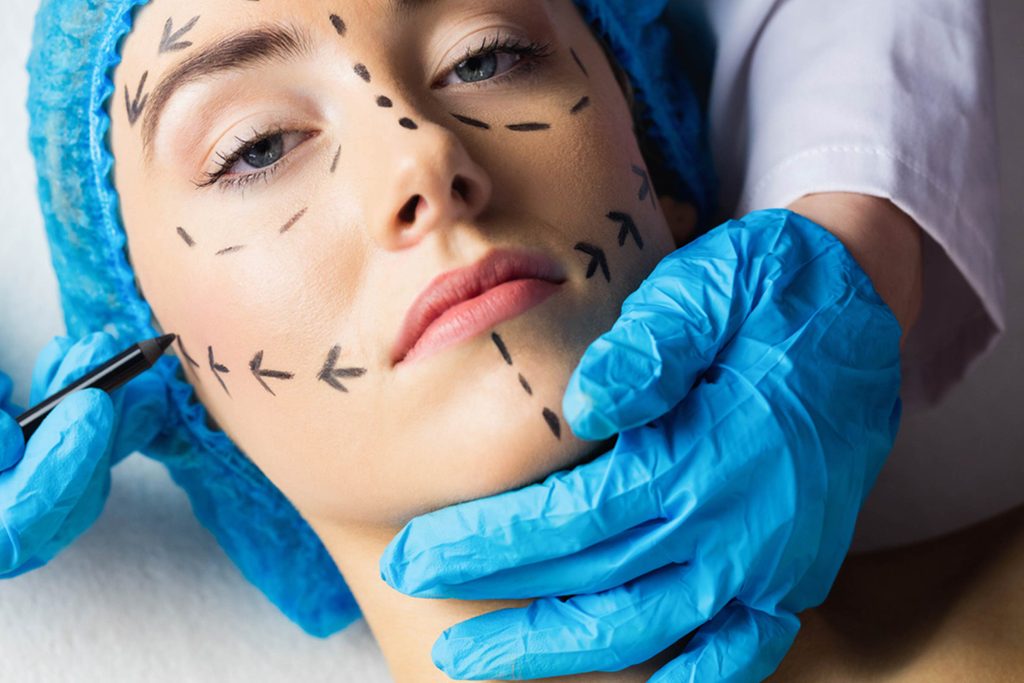Yikes! Only 18 Percent of Plastic Surgery Instagram Posts Are by Qualified Doctors
Updated: Sep. 11, 2017
That "plastic surgeon" might just be a hair salon.
 In the age of social media highlight reels, it’s no surprise that doctors would use Instagram to attract customers. Certain procedures are soaring; between 2000 and 2016, the number of American breast augmentations went up by 37 percent, and lower body lifts rose by a staggering 5,353 percent.
In the age of social media highlight reels, it’s no surprise that doctors would use Instagram to attract customers. Certain procedures are soaring; between 2000 and 2016, the number of American breast augmentations went up by 37 percent, and lower body lifts rose by a staggering 5,353 percent.
If you’re considering plastic surgery, though, you might want to stay off social media when searching for a doctor. The person behind the post might not be who you think.
Northwestern University medical school researchers searched Instagram for 21 plastic surgery-related hashtags like #cosmeticsurgery, #nosejob, and #liposuction. Ready for the shocker? Only 18 percent of the top posts were from board-certified plastic surgeons, according to the study in Aesthetic Surgery Journal.
About 42 percent of the posts came from foreign surgeons, so the study authors couldn’t confirm if they met American standards for board certification. But another 26 percent of the posts came from doctors who weren’t board-certified to do the procedures they advertised, like otolaryngologists, dermatologists, general surgeons, and gynecologists. Some of the other posts even came from people without medical degrees, like dentists, non-medical spas (though even medical spas have scary secrets they won’t tell you), and hair salons. Not the types of people you want cutting you open.
Going to any doctor seems legit enough, but those physicians might not have the proper training for the procedure you want. Board-certified plastic surgeons need to go through at least three years as a surgical resident after medical school, plus another three years specifically focusing on plastic surgery. Other doctors might not make the cut. Some might have gone through a yearlong fellowship to learn the procedure, but others could do as little as taking a three-day course learning how to use injectables or do a liposuction, then call themselves cosmetic surgeons. (If you want to suck out unwanted fat, here’s everything you need to know about liposuction.)
“Although a tummy tuck may seem like a straightforward removal of skin and fat, there are several variations in the technique that allow us to optimize the results for individual patients that can only be learned in the setting of the full spectrum of plastic surgery residency training,” study author Clark Schierle, MD, PhD, FACS, says in a statement. The problem is, an Instagram account won’t tell you much about their level of experience—but you can look for these signs of a bad doctor.
Another study found patients’ risk of complications for removing their pannus (skin hanging over the lower belly after major weight loss) was three times higher when they went to a doctor who wasn’t a plastic surgeon. So finding an actual plastic surgeon can definitely pay off.
Another troubling finding: While board-certified plastic surgeons were more likely to post educational content, the non-certified posts were more likely to be self-promotional. They were also more likely to use lay terms (think: #boobjob instead of #breastaugmentation), probably because their biggest concern was driving traffic.
“Using the term ‘boob job’ as opposed to ‘breast augmentation’ would allow you to reach more patients,” Dr. Schierle says in the statement. “But for me, as a responsible clinician, the term ‘boob job’ sends shivers down my spine and is highly inappropriate from many standpoints.” He recommends surgeons find a balance between “elegant terminology” and terms patients will actually search for.
As with any medical procedure, you should do some digging before picking a doctor and read up on these tips for finding a doctor you can trust. Don’t be afraid to ask questions about the person’s experience, and remember that your safety is more important than a low price tag. “The confusing marketing on social media is putting people at risk,” Dr. Schierle says in the statement. “There have been many recent reports of patient harm and deaths resulting from inexperienced providers offering services outside of their area of expertise.” Oh, and don’t forget to check with your insurance company—there are some surprising plastic surgeries insurance can cover.